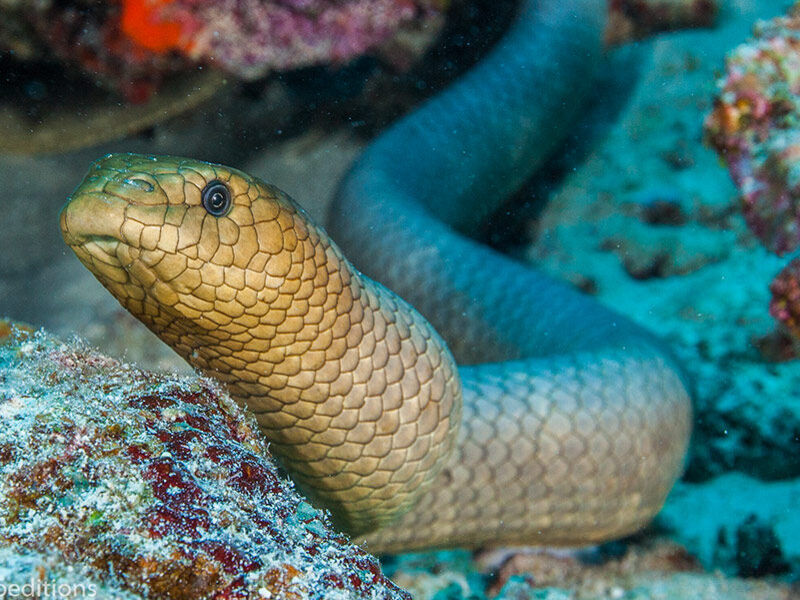
New research has found that scuba divers who’ve been attacked by olive sea snakes were probably mistaken for a potential love interest.
The study, published in the journal Scientific Reports, analysed data from encounters between one of the authors and olive sea snakes on the Great Barrier Reef.
James Cook University Professor Emeritus Ross Alford said scuba divers frequently report unprovoked attacks by sea snakes, which can involve chasing and biting.
“Males were more likely than females to approach the diver, especially during the mating season, and flicked their tongues near the diver’s body,” he said.
##BA##
“13 encounters involved sea snakes rapidly charging at the diver."
##PQ##
The researchers found that sea snakes approached the diver during 74 out of the 158 encounters.
This occurred more frequently during the mating season, between May and August.
All charges during mating season and those involving males occurred immediately after an unsuccessful chase of a female, or an interaction with a male rival.
Previous research has suggested sea snakes find it difficult to identify shapes in water and Dr Alfred believes most attacks were caused by male sea snakes mistaking a diver for a rival snake or a potential mate.
It’s thought female sea snakes may perceive a diver as a potential hiding place.
“Charges by females occurred after they were chased by males or lost sight of, and then re-approached the diver,” Dr Alford said.
His advice if you encounter a sea snake is to allow the reptile to flicker its tongue at you.
“By staying still and allowing a sea snake to investigate them with its tongue, a diver is unlikely to escalate the encounter and be bitten,” he said.
Main points
- 158 encounters with olive sea snakes on the Great Barrier Reef were analysed
- In almost half of the encounters, the snakes approached the diver
- More attacks occurred during mating season




